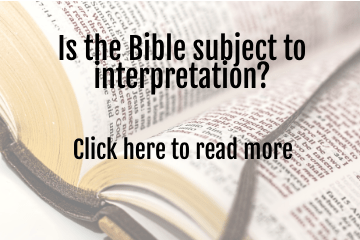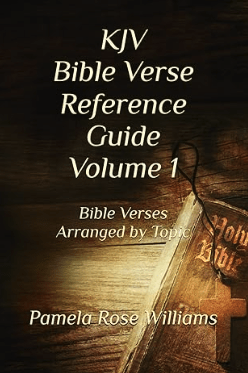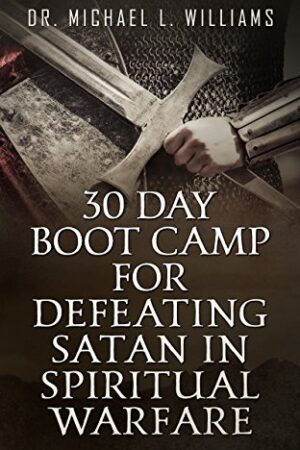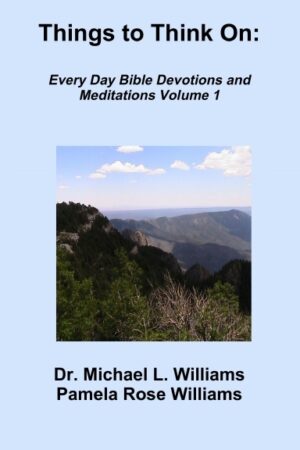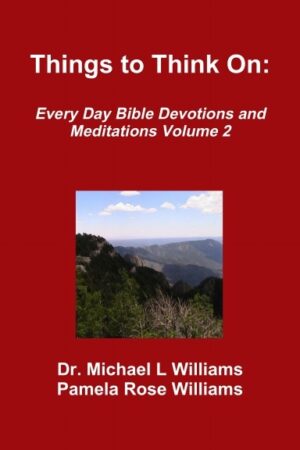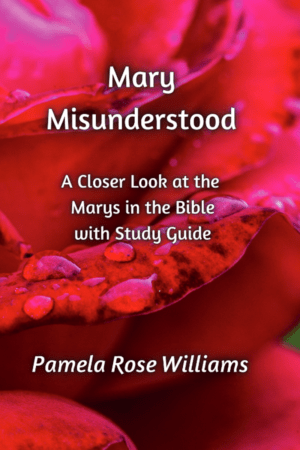Introduction
Throughout the centuries, many Christians and non-Christians alike have become familiar with the Lord’s Prayer. Reciting it along with the Ten Commandments was even once done in America’s schools and other public places. However, while many people have learned it, a large number of them have never been blessed with knowing the fullness of Praying the Lord’s Prayer to our Father.
What is the history of the Lord’s prayer?
In Matthew, Chapters 4 and 5, we are told of the beginning of Jesus’ public ministry after His baptism by John the Baptist. It began by going into the wilderness to pray and fast for 40 days where He was tempted by Satan. Afterwards He began preaching and calling disciples to follow Him. From there He began healing the sick, demon possessed, disabled, and mentally ill, which resulted in a large following of people. He came upon a mountain and His disciples came to Him, where He began to teach them. This time of teaching is known as the Sermon on the Mount starting in Matthew Chapter 5 and into Matthew Chapters 6-7.
During this Sermon on the Mount Jesus taught them many things including how to pray to “Our Father” that became known as the Lord’s Prayer. It is this teaching that became a model for how we should pray, and it was taught by the Apostles in their ministry, even after Jesus’ ascension to Heaven. In time, individual believers and Christian denominations over the centuries taught it and formally adopted it (1). At the same time, we also see that this prayer was not unique to this sermon on the mount. We see later in His ministry that Jesus taught this prayer in a slightly different version when asked by a disciple to teach them how to pray as John the Baptist taught his disciples in Luke 11:1-4.
What is the Lord’s prayer?
When we get to Matthew Chapter 6:9-13 we see specifically what Jesus taught them about praying the “Lord’s Prayer” to “Our Father” as follows:
(Matthew 6:9-13) “…Our Father which art in heaven, Hallowed be thy name. Thy kingdom come. Thy will be done in earth, as it is in heaven. Give us this day our daily bread. And forgive us our debts, as we forgive our debtors. And lead us not into temptation, but deliver us from evil: For thine is the kingdom, and the power, and the glory, for ever. Amen.”
While these words are very specific and recited by millions over the years, we also see that they not only are a specific prayer, but they are also a summary of a much larger lesson that Jesus teaches us about praying.
What does the Lord’s prayer teach us about praying?
If we break down the Lord’s prayer into specific parts, we see that it teaches us many things. These parts are taught in more detail in Matthew Chapter 6 as follows:
“Our Father which art in heaven”
The prayer begins in verse nine by addressing our Father, God, “Who art in Heaven”. The use of the word “art” as opposed to the word “is” indicates that it is not addressing just one person. It is addressing more than one because “art”, like the modern word “are” is plural. This is because God is manifest to us in more than one way as God the Father, God the Son, and God the Holy Spirit.
We also see that like the Word of God, which is manifest to us in Jesus (John 1:1, 14): in the beginning the prayer starts by addressing God first just like the Bible does in Genesis 1:1 and Revelation 1:8 as follows:
(Genesis 1:1) “In the beginning God created the heaven and the earth.
(Revelation 1:8) “I am Alpha and Omega, the beginning and the ending, saith the Lord, which is, and which was, and which is to come, the Almighty”
“Hallowed be thy name”
The prayer continues in verse nine to declare the holiness of God and His name. This acknowledgement sets a tone of holiness and reverence for God in how we pray to Him. We see this practically described in three ways:
1. When we give our gifts and service to God:
(Matthew 6:1-4) “Take heed that ye do not your alms before men, to be seen of them: otherwise ye have no reward of your Father which is in heaven. Therefore when thou doest thine alms, do not sound a trumpet before thee, as the hypocrites do in the synagogues and in the streets, that they may have glory of men. Verily I say unto you, They have their reward. But when thou doest alms, let not thy left hand know what thy right hand doeth: That thine alms may be in secret: and thy Father which seeth in secret himself shall reward thee openly.”
This passage of Scripture teaches us that when we give our gifts and service to God that we do it in a way that is in private and does not glorify ourselves. We do not make a big deal out of it in front of others or expect to be acknowledged for what we have done to draw attention and glory to ourselves. But instead, we conceal what we are doing as much as possible so that only God knows what is being done.
2. When we pray to God:
(Matthew 6:5-8) “And when thou prayest, thou shalt not be as the hypocrites are: for they love to pray standing in the synagogues and in the corners of the streets, that they may be seen of men. Verily I say unto you, They have their reward. But thou, when thou prayest, enter into thy closet, and when thou hast shut thy door, pray to thy Father which is in secret; and thy Father which seeth in secret shall reward thee openly. But when ye pray, use not vain repetitions, as the heathen do: for they think that they shall be heard for their much speaking. Be not ye therefore like unto them: for your Father knoweth what things ye have need of, before ye ask him. After this manner therefore pray ye:”
This passage of Scripture teaches us that when we personally pray, we do it in a way that is private and personal with God. This also means we do not use repetitious prayers that are recited, but instead, we privately bare our thoughts, desires, and souls to God. We also do not have to use King James Old English to talk to Him. Instead, we pray to God in a way much like we would with a close and trusted friend.
On the other hand, this does not stop us from praying together with other believers such as in a prayer meeting or an established reverent group prayer. Instead, this is telling us not to make a public prayer a public spectacle to draw attention to ourselves. To learn more about talking to God in a personal way throughout the day, read the article: Have you ever talked to God?
3. When we fast
(Matthew 6:16-18) “Moreover when ye fast, be not, as the hypocrites, of a sad countenance: for they disfigure their faces, that they may appear unto men to fast. Verily I say unto you, They have their reward. But thou, when thou fastest, anoint thine head, and wash thy face; That thou appear not unto men to fast, but unto thy Father which is in secret: and thy Father, which seeth in secret, shall reward thee openly.”
This passage of Scripture teaches us that we should fast in a way so that no one else knows we are fasting. We don’t tell others, nor make ourselves look disfigured in such a way that makes us look like we are suffering from hunger. Notice, that it is done like prayer, in private. We see an example of this in Matthew 4:1-11 when Jesus went into the wilderness to be tempted of the devil. There He prayed and fasted 40 days and 40 nights, during which time the devil unsuccessfully tempted Jesus to do things to break His fast and draw Him away from God.
“Thy kingdom come. Thy will be done in earth, as it is in heaven”
The prayer proceeds to verse ten by having us pray that we focus on God’s will in our lives to put Him and His kingdom first in everything. We pray that we devote ourselves to working for Him to build His kingdom on earth that is in alignment with His kingdom in heaven. This also means that we are not spending all our time and effort to get treasures and build kingdoms for ourselves on earth that cannot be taken to Heaven. But instead, we work knowing that only our rewards in Heaven have any value (1 Corinthians 3:8-15; Revelation 11:15-19). Practically speaking, this is why we never see a U-Haul trailer behind a hearse, because there is no earthly thing that we can take with us to heaven. We see this part of the prayer described in Matthew 6:19-21 as follows:
(Matthew 6:19-21) “Lay not up for yourselves treasures upon earth, where moth and rust doth corrupt, and where thieves break through and steal: But lay up for yourselves treasures in heaven, where neither moth nor rust doth corrupt, and where thieves do not break through nor steal: For where your treasure is, there will your heart be also.”
“Give us this day our daily bread.”
This part of the prayer in verse eleven focuses our thoughts on praying for God’s provision to feed us in our lives. We notice that it says give “us” this day “our” daily bread. This means that we not only are praying that our needs are met, but that the needs of others are also met. This not only means praying for physical food, nourishment, and provision, but also Spiritual food, nourishment, and provision in the Word of God (1 Corinthians 3:1-4; Philippians 4:10-19; Hebrews 5:11-14). We see this part of the prayer described in Matthew 6:24-34 as follows:
(Matthew 6:25-34) “Therefore I say unto you, Take no thought for your life, what ye shall eat, or what ye shall drink; nor yet for your body, what ye shall put on. Is not the life more than meat, and the body than raiment? Behold the fowls of the air: for they sow not, neither do they reap, nor gather into barns; yet your heavenly Father feedeth them. Are ye not much better than they? Which of you by taking thought can add one cubit unto his stature? And why take ye thought for raiment? Consider the lilies of the field, how they grow; they toil not, neither do they spin: And yet I say unto you, That even Solomon in all his glory was not arrayed like one of these. Wherefore, if God so clothe the grass of the field, which to day is, and to morrow is cast into the oven, shall he not much more clothe you, O ye of little faith? Therefore take no thought, saying, What shall we eat? or, What shall we drink? or, Wherewithal shall we be clothed? (For after all these things do the Gentiles seek:) for your heavenly Father knoweth that ye have need of all these things. But seek ye first the kingdom of God, and his righteousness; and all these things shall be added unto you. Take therefore no thought for the morrow: for the morrow shall take thought for the things of itself. Sufficient unto the day is the evil thereof.”
“And forgive us our debts as we forgive our debtors”
This part of the prayer in verse twelve focuses our thoughts on praying for those that sin against us or are in debt to us. We see this reflected in the teaching of the Lord’s prayer mentioned previously in Luke 11, verse 4, which says, “And forgive us our sins; for we also forgive everyone that is indebted to us.” There is a significant amount of background on this in the Old Testament law about being indebted to someone as not being a good thing. It even includes working for them to pay off the debt, but under the law would be forgiven after seven years. However, in the application toward sin, it encompasses our sins toward God and others and those that sin against us.
The Apostle Peter makes mention of this in Matthew 18:21-22, when he asks Jesus how often he should forgive a brother that sins against him and suggests seven times. Jesus tells Peter instead to forgive them seventy times seven times. Jesus was not saying 490 times, but to forgive every time someone humbles themselves and confesses their sins to us and asks for forgiveness. What we learn from this is that when we pray, we examine ourselves for anything we might have done that is sinful toward others and sinful toward God so that He forgives us. We see this explained in Matthew 6:14-15 as follows:
(Matthew 6:14-15) “For if ye forgive men their trespasses, your heavenly Father will also forgive you: But if ye forgive not men their trespasses, neither will your Father forgive your trespasses.”
“And lead us not into temptation, but deliver us from evil”
This part of the prayer in the beginning of verse thirteen focuses our thoughts on praying that God would help us to be consistently thinking and focusing on things that are good in God’s eyes. It is teaching us that we should constantly be focusing on the Word of the Lord, Who is light, that illuminates our life so that we may discern good and evil and not be tempted by things hidden in darkness that lie in wait to deceive us (Luke 11:33-36; John 1:1-18; Ephesians 4:11-16). Light disperses darkness so focusing on the Lord lights our lives to the schemes of the devil so that we are not deceived into serving both God as well as the riches of the devil (mammon) as two masters. We see this explained in Matthew 6:22-24 as follows:
(Matthew 6:22-24) “The light of the body is the eye: if therefore thine eye be single, thy whole body shall be full of light. But if thine eye be evil, thy whole body shall be full of darkness. If therefore the light that is in thee be darkness, how great is that darkness! No man can serve two masters: for either he will hate the one, and love the other; or else he will hold to the one, and despise the other. Ye cannot serve God and mammon.”
“For thine is the kingdom, and the power, and the glory, for ever.”
This final part of the prayer, in the latter half of verse thirteen, it helps us summarize our thoughts on everything we pray for as we diligently work on God’s kingdom, rely on His power, and devote ourselves to His glory forever. As we saw in verse ten, God’s kingdom is everywhere, on earth and in Heaven. We must be content and rely upon God’s power, given to us the moment we trust Christ as our Saviour, to empower us to do all things through Him. We see this in Philippians 4:11-13 as follows;
(Philippians 4:11-13) “Not that I speak in respect of want: for I have learned, in whatsoever state I am, therewith to be content. I know both how to be abased, and I know how to abound: every where and in all things I am instructed both to be full and to be hungry, both to abound and to suffer need. I can do all things through Christ which strengtheneth me.”
“Amen.”
The end of the Lord’s Prayer, verse thirteen, closes with what was established at the beginning when we started praying to Our Father which art in heaven. Finishing with the word, Amen, affirms the truth as it literally expresses absolute trust and confidence in what was said in our prayer to the Father.
As we also saw with the beginning of the prayer with an understanding that God is the Alpha (beginning) and Omega (ending) in Revelation 1:8, we close the prayer with recognition of God in the ending. Furthermore, as we looked at Genesis 1:1, which says, “In the beginning God…”, we see that the prayer started, but appears to end here. However, it really never ends as we are told to in 1 Thessalonians 5:17-18:
“Pray without ceasing. In every thing give thanks: for this is the will of God in Christ Jesus concerning you.”
With this in mind, we also see that the Word of God never ends, and we will see Him face to face for an eternity:
Revelation 22:20-21 “He which testifieth these things saith, Surely I come quickly. Amen. Even so, come, Lord Jesus. The grace of our Lord Jesus Christ be with you all. Amen.”
Final Thoughts
Hopefully, as we have studied the Lord’s Prayer to our Father, we are blessed to know that praying the Lord’s Prayer is not only a wonderful thing to do, but we can also use it as a mental queue and framework to bring to mind everything we would ever want to pray about. We praise God for teaching us this prayer as He did to His disciples so that we too may go out into the world as they were charged to do in Matthew 28:19-20:
“And Jesus came and spake unto them, saying, All power is given unto me in heaven and in earth. Go ye therefore, and teach all nations, baptizing them in the name of the Father, and of the Son, and of the Holy Ghost: Teaching them to observe all things whatsoever I have commanded you: and, lo, I am with you alway, even unto the end of the world. Amen.”
(1) https://www.britannica.com/topic/Lords-Prayer







